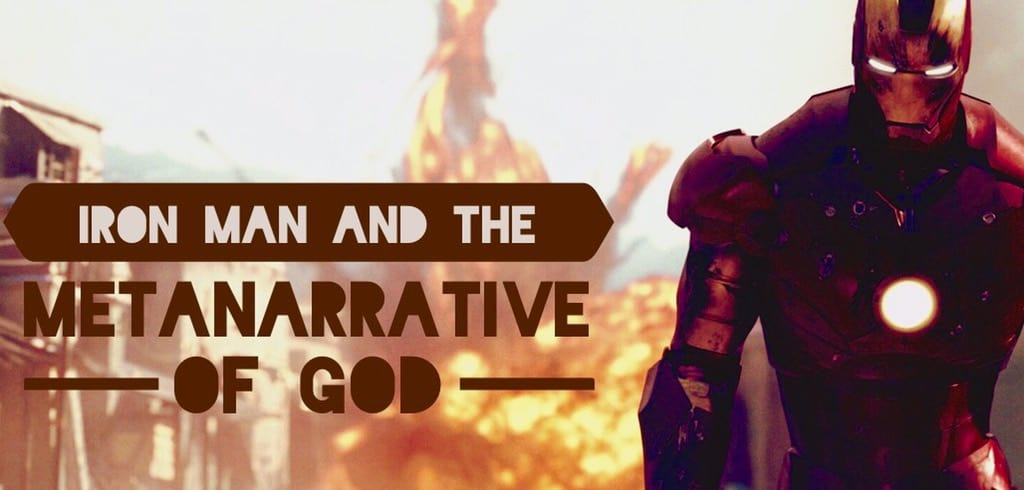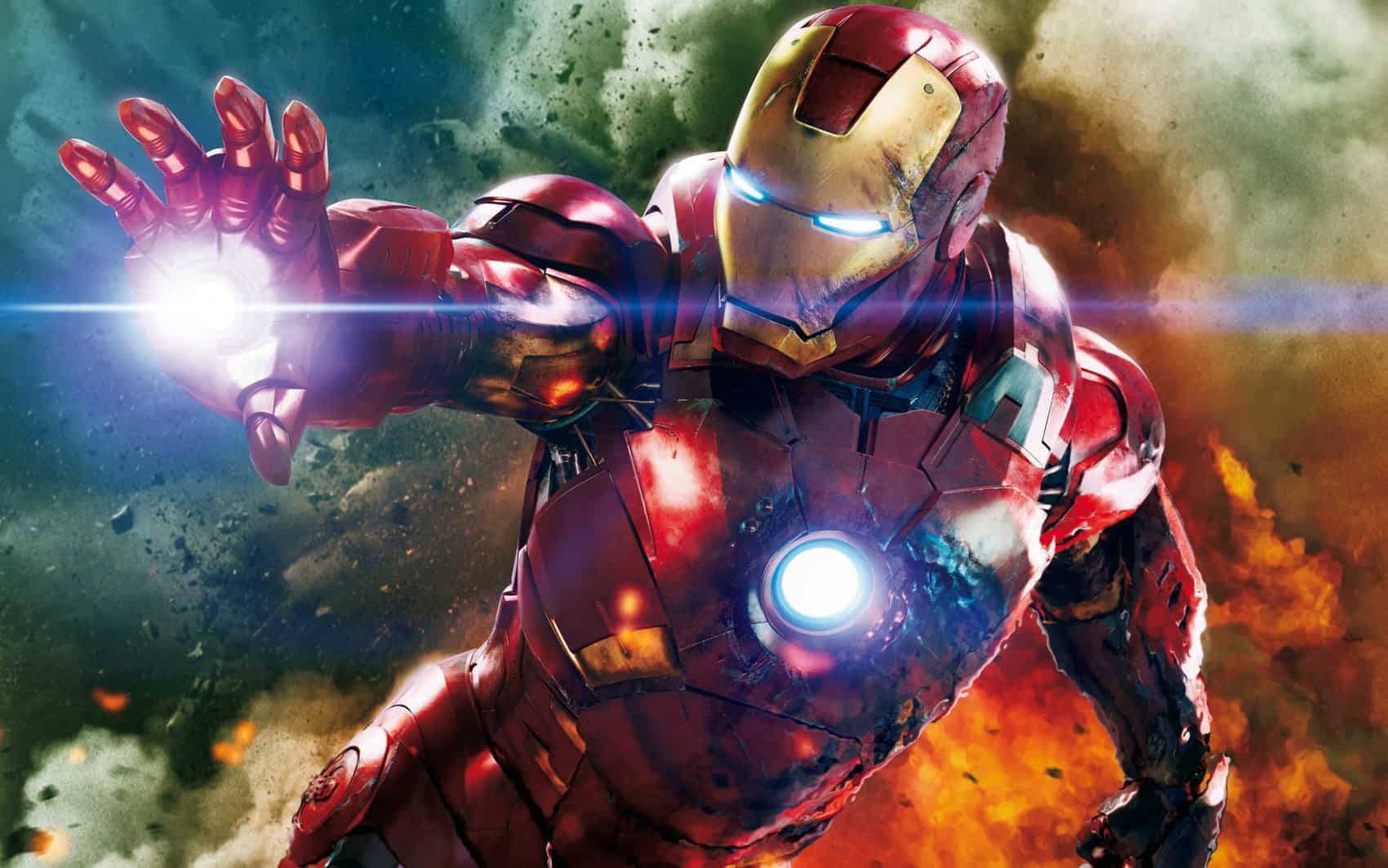This exploration of Iron Man is the second in a series of posts exploring theological themes in the Marvel Cinematic Universe. You can find the rest of the series here. I recommend using VidAngel to filter the content of this film for your family.
The Marvel Cinematic Universe launched in 2008 with the story of Tony Stark, the man that your parents warned you about.
Tony Stark’s ego, libido, affluence, and intelligence all seem equally unlimited. He produces and profits from weaponry without worrying about where his technology may wind up. He keeps no schedule but his own, and his first priority is his own pleasure. He seduces women and tosses them aside the next morning, charging his assistant with the task of—in her words—“taking out the trash.” Tony Stark is a despicable debaucher, the Big Bad Wolf with an entire weapons industry at his disposal instead of a mere mouthful of fine teeth. He is—in the words of a man he meets when his world falls apart—“a man who has everything, and nothing.”
Iron Man and the Metanarrative of God
Tony Stark’s theatrics are godlike. He stretches out his arms at a weapons test and, at his command, the mountains melt like wax (Psalm 97:5; Micah 1:4; Nahum 1:5). His latest and most advanced weapon is named “Jericho” after the biblical battle in which God himself flattened the city walls (Joshua 6:15-20). Tony’s self-perceived divinity is, however, of the pagan sort—capricious, foolish, and far more vulnerable than he is willing to admit. His faith is fully invested in himself.
But then one of his own inventions breaks his heart.
Literally.
Tony Stark is attacked by terrorists bearing weapons imprinted with his own name, and the eruption of one of his creations pierces his heart. A stranger saves Tony’s life by implanting a device in his sternum that suspends the slivers of shrapnel mere millimeters from Tony’s corrupted heart. Thus the life of this man who has behaved like a pagan deity becomes dependent on electricity pulsing around an iron core.
In his quest to save himself, Tony Stark improves the device in his heart and hammers himself a suit of steel on an iron anvil, like Hephaestus forging the armor of Aegis and Achilles. He becomes the Tin Woodman of Oz in search of his lost heart, but with weaponry far more powerful than a mere ax. He bursts through the gates of Hades with fire belching from his fists, and the price of his salvation from the underworld is the sacrifice of the man who saved him from death. The final words of this man who has laid down his life for his friend (John 15:13) stand as a challenge to Tony’s self-centered existence: “Don’t waste it. Don’t waste your life.“
And he doesn’t.
Tony Stark returns to Malibu a—mostly—changed man. No longer a profiteer from the proliferation of advanced weaponry, Tony creates the armor that turns him into the walking weapon known as Iron Man. Before the movie ends, Tony manages to muster up some semblance of love for the woman who has thus far merely cleaned up his messes. Faced with a destructive distortion of his own invention, Iron Man even becomes willing to follow the example of the friend who saved his life by sacrificing his own life for the sake of others.
No Pristine Past: Creation and Fall in Iron Man
Iron Man provides us with no vision of a pristine past when all was well and good. There is no sinless Eden in Tony Stark’s world. From the first scene of this film, we are plunged into a cosmos infected with selfishness and brutality—a fallen world where, in a foreshadowing of the side that Tony will take later when faced with the Sokovia Accords, powerful forces have proliferated with “zero accountability.” Tony Stark has spent his entire life gorging himself on forbidden fruit from the Tree of Knowledge, but no one has yet arrived to pass judgment on his perverted paradise. When judgment falls and pierces his hardened heart, Tony escapes from his desert exile, but the selfishness of his own soul remains his greater prison.
“I Know In My Heart That It’s Right”: Redemption in Iron Man
After glimpsing the depravity inflicted by his own weaponry and seeing a life sacrificed for his freedom, Tony Stark experiences a conversion of sorts. His heart has been pierced not for the iniquities of others but because of his own. Broken-hearted, he takes responsibility for what he has created and seeks to use his technology to undo the evils he has caused.
Tony Stark begins to do what he does because—in his words—“I know in my heart that it’s right.” This turn in Tony’s life opens the door for love and sacrifice. With the emergence of these values, the narrative of Iron Man manages to stumble in spite of itself across a truth that is etched in every human soul, the truth of our need for a savior who sacrifices himself in our place.
Any notion of redemption is, of course, fragmented and incomplete in Iron Man. The Marvel Cinematic Universe never seems quite certain whether Tony’s swaggering antics are to be excoriated or excused with a smirk. Even at his best, Iron Man is left with a moral compass no larger than what he feels in his heart to be right. These feelings of rightness lead him to some semblance of love for Pepper Potts, but they never quite move him to anything resembling a commitment to covenant faithfulness. And—as Avengers: Age of Ultron and Captain America: Civil War will reveal—what one hero feels in his own heart to be right may stand in stark contrast to what another equally well-intended hero senses in his heart. “The heart is deceitful above all things, and desperately wicked,” the Holy Spirit pointed out through the prophet Jeremiah. “Who can know it?” (Jeremiah 17:9).
A Story as Vast as the Universe: Iron Man and the New Creation
Throughout this tale of the re-creation of Tony Stark, the persistent presence of Agent Coulson teases us with the possibility that Iron Man may be part of a plan larger than he knows. The post-credits sequence with Nick Fury confirms this supposition. There is no cosmic consummation or new creation in Iron Man, but it becomes clear that whatever is at stake is far larger than Stark Industries. And Tony Stark’s willingness to sacrifice himself for the sake of another sets the template for the rest of this metanarrative that will grow to become as vast as the universe itself.

Discuss in the Comments:
What theological themes do you see in Iron Man that I may have missed? How does the vision of Iron Man in the Marvel Cinematic Universe differ from the comic books? How have the later films in the Marvel Cinematic Universe changed your perspective on this first film?


